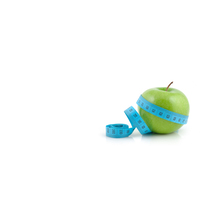WHAT YOUR BODY IS REALLY CRAVING!
By: AP On: 4 January 2019


WHAT YOUR BODY IS REALLY CRAVING!
Did you know that food cravings are often your body telling you it is missing nutrients? It is really important to know what your body actually wants when you are trying to lose weight and exercising. When you start to exercise your metabolism will increase, so you need to know which foods will help suppress your hunger for longer and fulfil your nutritional needs.
You need to bare in mind that not all food cravings are related to nutritional imbalance. Some of your strongest food cravings can occur during your weakest emotional points. Food cravings can be related to work stress, relationship problems and even bad weather. When these things occur you will normally find yourself eating carbohydrates, sugary and fatty based foods. When these things occur you need to make yourself aware of why you are eating and consider a healthy alternative or consider coping with it through physical activity.
|
If you crave this… |
You really need this… |
Foods that have it… |
|
-Chocolate -Acidic foods |
Magnesium |
Bran (rice, wheat, oat), Dried Herbs, Dried or roasted Seeds - Squash, pumpkin and watermelon seeds, Flax, Sesame Seeds, Cocoa Powder (Dark Chocolate), Raw nuts. Molasses, Dry roasted soybeans. |
|
Chocolate isn’t all bad for you if eaten in small amounts and contains a medium to high amount of cocoa powder. However it only contains approximately 50mg of magnesium which is less then 1000mg that is needed in some cases.
|
||
|
Sweets |
Chromium |
Whole grain bread, cereal, lean meat, cheese, asparagus, mushroom, green beans, prunes, potatoes, bananas, nuts, red wine and oranges, flax seed oil, coconut oil, grapes. |
|
Chromium plays a factor in blood sugar and cholesterol regulation and is necessary for metabolism of proteins, fats and carbohydrates. Chromium is not produced naturally by your body and needs to be obtained through food. You only need small amounts in your diet.
|
||
|
-Sweets -Burned food |
Carbon |
Fresh fruit and vegetables, all carbohydrates, and sugars. |
|
-Sweets -Coffee or tea |
Phosphorus |
Chicken, beef, liver, poultry, fish eggs, seafood, dairy, nuts, legumes, grains. |
|
Phosphorus contributes to the strengthening of your bones and skeletal development. It also assists your kidney and maintains your electrolytes and clued balance.
|
||
|
-Sweets -Coffee or tea |
Sulfur |
Cranberries, horseradish, cruciferous vegetables, cabbage, kale, red meat, poultry, fish, legumes, egg yolks, onion and garlic. |
|
Helps connective tissues, nerve cells, liver function, skin, hair and nails. |
||
|
Sweets |
Tryptophan |
Cheese, liver, lamb, raisins, sweet potato, spinach. |
|
Tryptophan is a building block for protein which your body doesn’t produce naturally. It is required for growth development and helps balance your ability to process other amino acids which repair lean muscle tissue.
|
||
|
Bread, Toast |
Nitrogen |
High protein foods: fish, meat, nuts, beans. |
|
Nitrogen is needed to produce antibodies and benefits your immune system. It should be consumed regularly through your diet.
|
||
|
-Oily snacks -Fatty foods -Coffee or tea |
Sodium |
Black-eyed beans, celery, cheese, corn meal, fish and seafood, fruit, kelp, meat, legumes, milk, olives, salt, chick peas. |
|
When your body is worked hard through exercise, stress or even sitting in an air conditioned office, it loses salt. Sodium helps heart performance, nervous system and glucose absorption. It maintains water balance, sun stroke, brain function and muscle cramping.
|
||
|
Coffee or tea |
Iron |
Meat, fish and poultry, seaweed, spinach, leafy greens, black cherries. |
|
Iron helps carry oxygen to your blood cells and helps all aspects of your body to function. Iron helps your muscle function, brain function, regulates your body temperature, helps your immune system plus more.
|
||
|
Coke, carbonated drinks |
Calcium |
Mustard, turnip, broccoli, legumes, cheese, sesame. |
|
Calcium is a daily health requirement and helps bone density.
|
||
|
Salty foods |
Chloride |
Raw goat milk, fish, unrefined sea salt. |
We hope that this list gives you a basic idea of the foods we require to help maintain a healthy and balanced diet. For more advise consult your doctor or health advisor.
Team Fitquip











